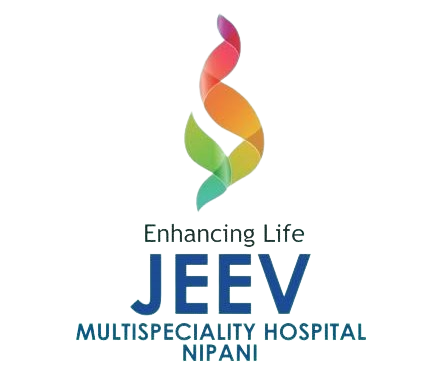Myocardial Infarction(Heart Attack)

Myocardial Infarction (MI), commonly known as a heart attack, occurs when blood flow to a part of the heart is blocked for a long enough time that part of the heart muscle is damaged or dies. This blockage is often caused by a buildup of fat, cholesterol, and other substances, which form a plaque in the coronary arteries. Symptoms of a heart attack can include chest pain or discomfort, shortness of breath, nausea, lightheadedness, and pain in the arm, neck, or jaw. Prompt medical attention is crucial to minimize damage to the heart muscle and improve survival outcomes.
Myocardial Infarction Care
At Jeev Multispeciality Hospital, we offer comprehensive and immediate care for patients experiencing a myocardial infarction. Our team of highly skilled cardiologists, nurses, and emergency personnel are equipped with the latest technology and expertise to provide rapid and effective treatment.
Emergency Response and Diagnosis: In the event of a heart attack, time is of the essence. Our emergency department is prepared to provide immediate care, including:
- Rapid Triage and Assessment: Quick evaluation of symptoms and medical history to confirm a heart attack.
- Diagnostic Testing: Utilization of electrocardiograms (ECG), blood tests for cardiac enzymes, and imaging studies like echocardiograms to assess heart damage and blockages.
Treatment and Intervention: Our treatment strategies aim to restore blood flow to the affected heart muscle as quickly as possible. These include:
- Medications: Administration of clot-busting drugs (thrombolytics), antiplatelet agents, anticoagulants, and pain relievers.
- Percutaneous Coronary Intervention (PCI): Also known as angioplasty, this procedure involves inserting a balloon to open the blocked artery and placing a stent to keep it open.
- Coronary Artery Bypass Grafting (CABG): In severe cases, surgery may be required to bypass blocked arteries using grafts from other parts of the body.
Post-Attack Care and Rehabilitation: After the initial treatment, our focus shifts to recovery and prevention of future heart attacks through:
- Cardiac Rehabilitation: A structured program that includes supervised exercise, education on heart-healthy living, counseling, and support.
- Lifestyle Modifications: Guidance on dietary changes, smoking cessation, weight management, and stress reduction to improve overall heart health.
- Medication Management: Ongoing prescription of medications to manage risk factors such as high blood pressure, cholesterol, and diabetes.
Ongoing Monitoring and Support: Regular follow-ups and continuous monitoring are essential for long-term heart health. We provide comprehensive care plans and support to ensure optimal recovery and prevention of recurrent cardiac events.


